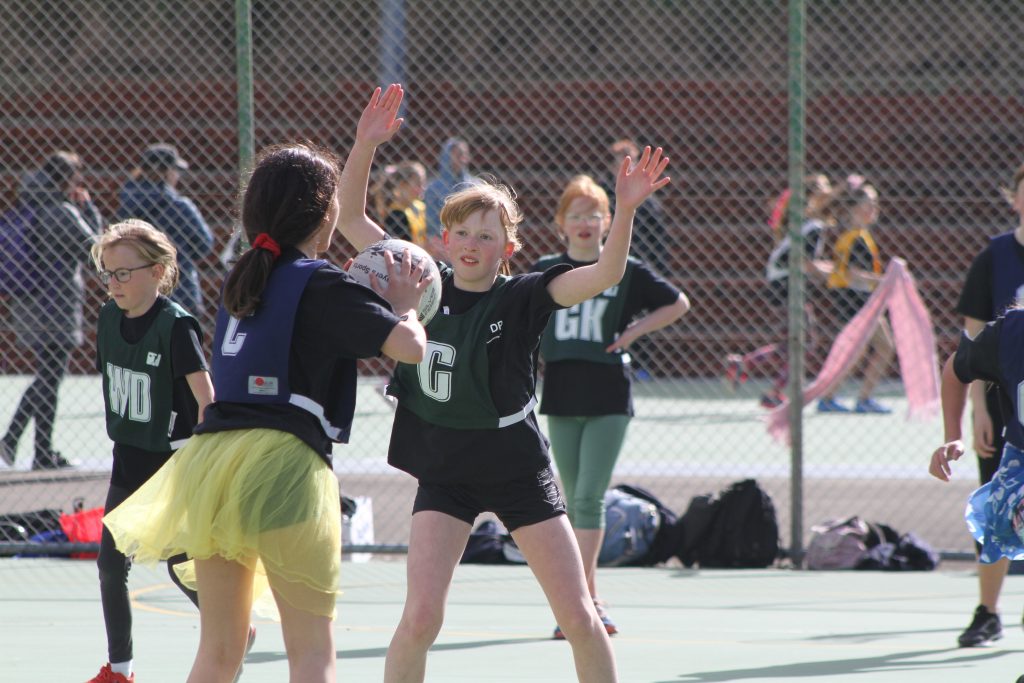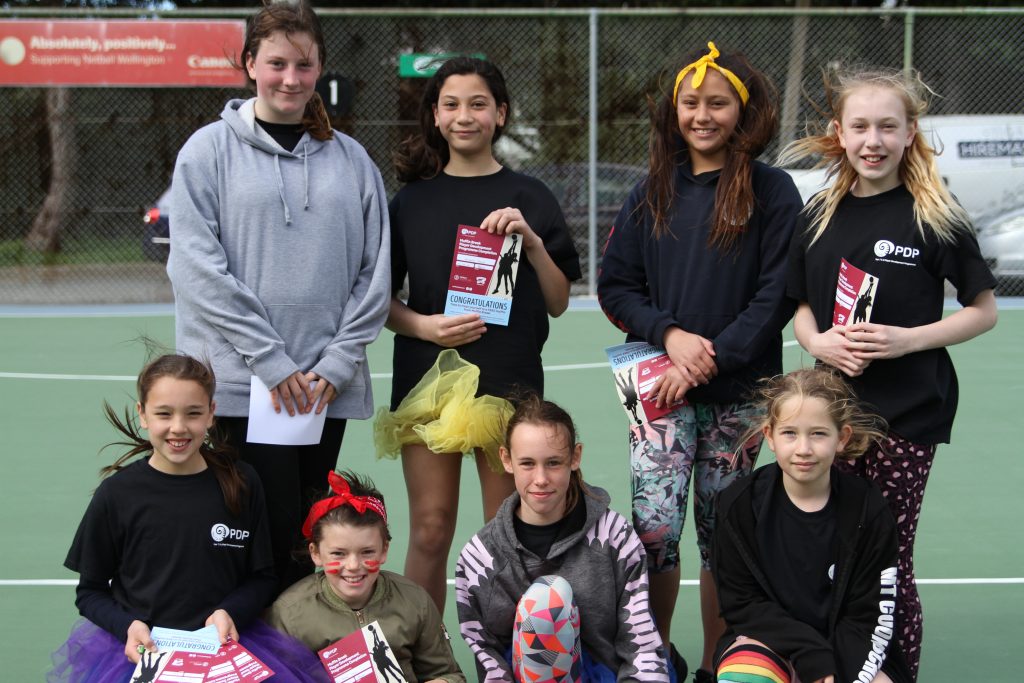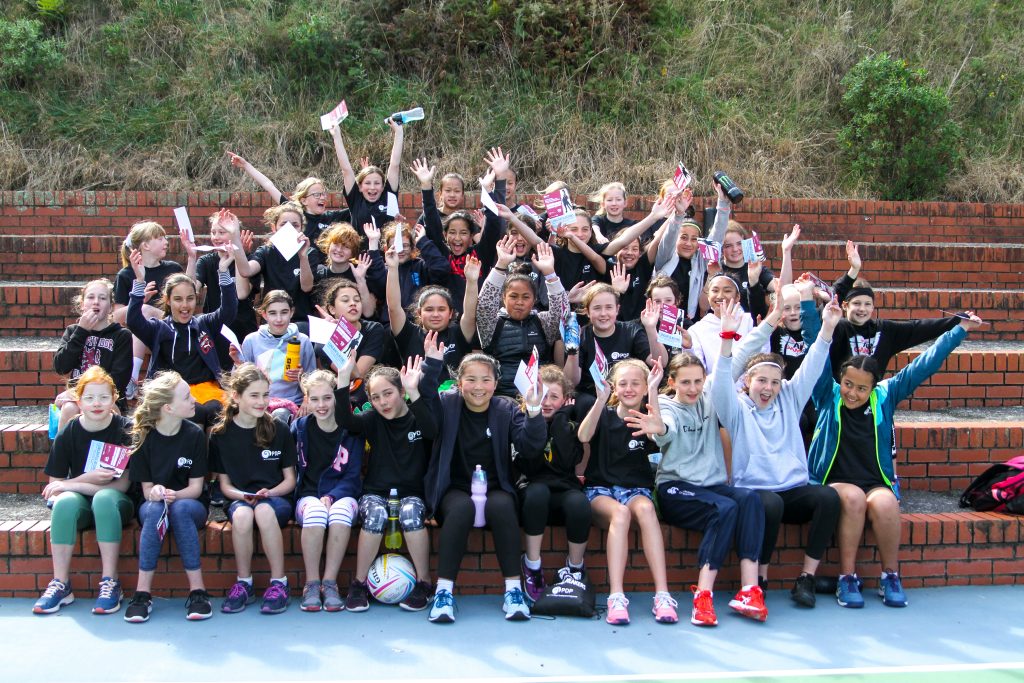Every weekend over the winter season thousands of Kiwi kids gather on netball courts around the country.
From the outside, the sport is as strong as always with netball continuing to reign supreme as our most popular sport, particularly for school-age girls. However, in recent years Netball New Zealand noticed some worrying trends – particularly around player drop off, injury rates and player experience. Rather than continuing with the status quo they decided to take a good look at what was going on and put a plan in place.
Junior Netball Review
Netball New Zealand recognised that what the game looked like and the experience for young players varied widely around the country, and so in 2012 they undertook a Junior Netball Review.
The Junior Netball Review found that:
- There was inconsistency between regions as to how the junior programme was run. Examples included what age netball should start, rotation policies and numbers-per-side.
- Player numbers dropped dramatically from junior school levels (67,798 players, 2012 data) to those playing at secondary school (37,470, 2012 data).
- Coaches, parents and administrators who responded to a nationwide survey all felt that junior netball could be improved by enhancing support and training of coaches to increase their confidence and competence. A review group was established that included development staff from across the country, including netball specialists and fundamental movement specialists as well as a collation of relevant academic research.
- Players enjoyed less formal play-to-play experiences that also provided social opportunities.
- A 9.5% decrease in secondary school participation in netball since 2007.
The review provided further insight into the barriers and challenges to participation and laid the foundation for change. Findings included:
- Netball was typically 7-on-7 format irrespective of age group.
- Coaching support and coach development were inconsistent in centres.
- There was a representative season in the middle of the club season, creating overload issues for players. Previously, the only extension opportunities available to Year 7 and 8 players were representative teams. These were built on a competition-focused model, which favoured a limited number of players.
Additionally, Netball NZ drew from research by Sport NZ and other sources, adding to the insights gathered from their Junior Netball Review. For example, ACC statistics showed netball related injuries for this age-group were also increasing with a 60% surge since 2008 in overall sports-related injuries to children aged 10-14 years – double the increase of any other age group.

Putting understanding into action
Having undertaken a rigorous process to understand the problems they were facing in junior and youth netball, Netball NZ then set out to improve junior and youth netball experiences. The result was the introduction of a new policy – the Junior Netball Policy – and two new programmes, futureFERNS and the Player Development Programme, to provide all junior players with greater development opportunities.
Released in 2017, Netball New Zealand’s Junior Netball Policy was designed to provide clarity and direction for all Junior (5-12 years) Netball.
The Junior Netball Policy is player-centric and endeavours to:
- make netball fun and enjoyable.
- provide consistency of delivery.
- enhance skill development appropriate to the child.
- provide challenges and opportunities to experience the joy of achieving.
- provide equal opportunities for all junior players, regardless of disability, ability, race, religion, and culture.
- provide clear pathways for development that will allow participants to fulfil their individual potential.
- encourage physical activity which promotes health and well-being.
- ensure safe and supportive environments.
The policy also highlights the importance of supporting players to develop their physical literacy – ensuring they have the motivation, confidence, physical competence, knowledge and understanding to value and take responsibility for engagement in physical activities for life.
In 2013, Netball NZ begun piloting futureFERNS, a new modified format of the game to improve experiences of players. For example, courts became smaller, hoops were lowered, and teams had fewer members. The modified versions of the game were researched by AUT and it was found that:
- There were 50% more successful passes in the modified versions of the game
- Less players on the court meant more decision-making opportunities for each player
- Players are more engaged in the game
- In the 5 v 5 game (Year 3 & 4) there was a successful shot every 3.1 minutes vs 8.9 minutes in the 7 v7 game for the same age-group.
futureFERNS would become embedded into the Junior Netball Policy, providing guidance to administrators and coaches in New Zealand on best practice for the delivery of netball to junior players.
“By its very nature, futureFERNS embodies the philosophy: a focus on playing the game for enjoyment, skill development and establishing a life-long love of the game.” Ruth Stanley, Head of Community Netball.
For those players in Year 7 and 8, the futureFERNS programme focused on ensuring they had the best possible opportunity to reach their potential – physically, psychologically and socially. Research showed that for this to occur, players needed enjoyable, quality development experiences that would help build their self-belief and ignite their passion and enjoyment for sport in well-rounded environments.
“Young people are not mini adults and it is important to meet their needs, taking into consideration their physical, cognitive, social abilities and well-being.” Jennie Wyllie, CEO Netball NZ.

In 2018, the organisation released its Player Development Programme (PDP) with the ‘radical-step’ of halting the de-selection of players at Year 7 and 8 levels. De-selection was identified as a key factor behind declining rates of participation, especially within age groups transitioning between junior and youth programmes. PDP was positioned as a substitution for historic representative programmes. In comparison to representative programmes, PDP would enable quality opportunities that better met the physical, social and emotional needs of young people to be experienced by more young people.
Aligned with Sport NZ’s Balance is Better initiative, which supports the idea of creating balance in sport participation and nurturing talent at the right pace, Netball NZ’s PDP included a variety of technical and tactical development. Its focus is to:
- provide development opportunities for all Year 7 and 8 players – players are not selected.
- continue to focus and build on fundamental movement skills as athletes move through puberty.
- embed the Physical Literacy Approach across all aspects of the programme.
- include technical and tactical development for all netball positions.
- implement a national philosophy for the development of Year 7 and 8 players.
- develop a wider talent base so players can specialise when it really counts.
The programme includes:
- physical skill and tactical netball development through diverse approaches.
- a focus on overall player wellness and development with sessions on; sleep, nutrition, coping with pressure and key values.
- a focus on developing strong, healthy, physically capable players through knowledge and support of injury prevention and Integrated neuromuscular development – improving muscle control of a growing body and improving and progressing netball movement skill.
- stage specific strength activities.
“It is imperative that we create a fun environment where players can build their confidence as well as develop their technical and tactical skills. Promoting holistic development ensures we develop great people as well as great players. Experiencing winning is an important part of playing sport but not winning at all costs.” Alysha Jensen, National Programmes Manager.
Championing and influencing change in a sport
Netball NZ has learned when implementing new programmes, it is important to build awareness and understanding about the issues with their community first and then transition into introducing the programmes For example, insights and education was relayed strategically into netball centres throughout the country prior to the introduction of PDP. Additionally, when Netball NZ rolled out a new programme, their approach has been to identify Centres likely to be early adopters (work with the willing). Post-implementation of the new programme in the early adopter Centre’s, Netball NZ focused on these centres to develop case studies to in turn promote the programme’s outcomes and benefits to other Centres.
For PDP, this meant, despite their being no requirement for Centres to sign-up to the new programme, 27 of the 83 Centres took on the initiative in its first year and 43 Centres were involved in 2019.
“We wanted to be flexible and let them build their own journey, as some Centres were at different stages of growth with their junior programmes, so they weren’t ready to make these changes yet,” said Alysha Jensen, Netball NZ National Programmes Manager.
To be involved in the PDP, Centres had to commit to removing representative teams, before they could introduce the programme, meaning there were equal opportunities for all year 7 and 8 players to participate.
Many of the Centres who signed up in 2018 were already well down the track of delivering the futureFERNS programme and the PDP was the next progressive step to ensuring a player-centred holistic experience.
The key outcomes from Netball NZ’s futureFERNS and PDP are:
- The number of year 7 and 8 players increased by 6% in 2018 and the landscape of netball changed from selection and de-selection, to an inclusive model.
- All Netball Centres are engaged in futureFERNS.
- Over 13000 coaches trained in futureFERNS since it started.
- 86% (avg. over last five years) of participants are satisfied or very satisfied with futureFERNS
- 1196 participants were involved in the first year of PDP (2018), an estimated 700 extra players who were given the opportunity to grow their confidence and skill development than would have participated in the traditional representative programme
- 27 out of 83 netball Centres took part in the first year of PDP (2018)
- 44 Centres out of 83 participated in PDP in the 2019 season
- 89% of players were satisfied or very satisfied with the programme
- 92% of parents were satisfied or very satisfied with the programme
“The new skills that she learnt. She was really keen and enthusiastic to attend every netball session.”
Year 7/8 Parent
“Developing more netball skills in a great environment and gaining more experience and mixing with new children.”
Year 7/8 Parent
Since the futureFERNS and PDP development Netball NZ has completed Year 1 of its Youth Engagement and Retention Strategy, targeting players aged 11-18 years. The strategy focuses on increasing participation, retention and positive youth development through netball.

Image Credits: Netball New Zealand







